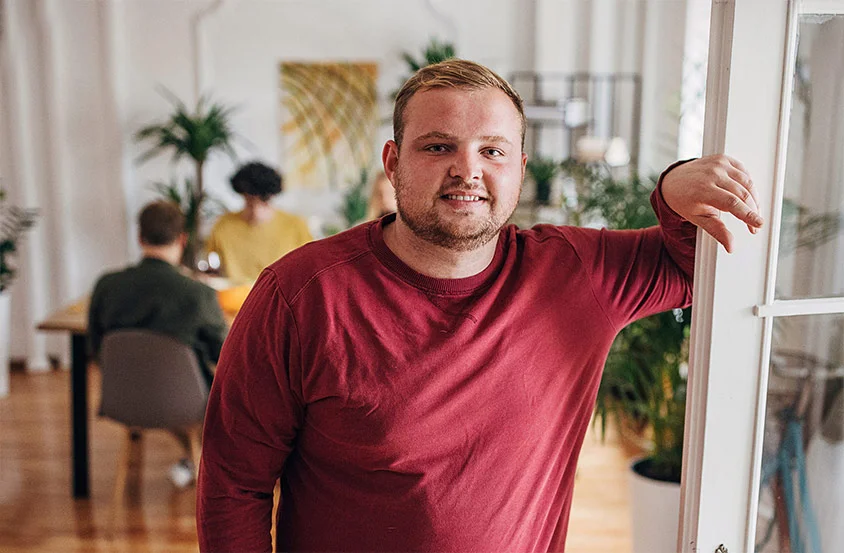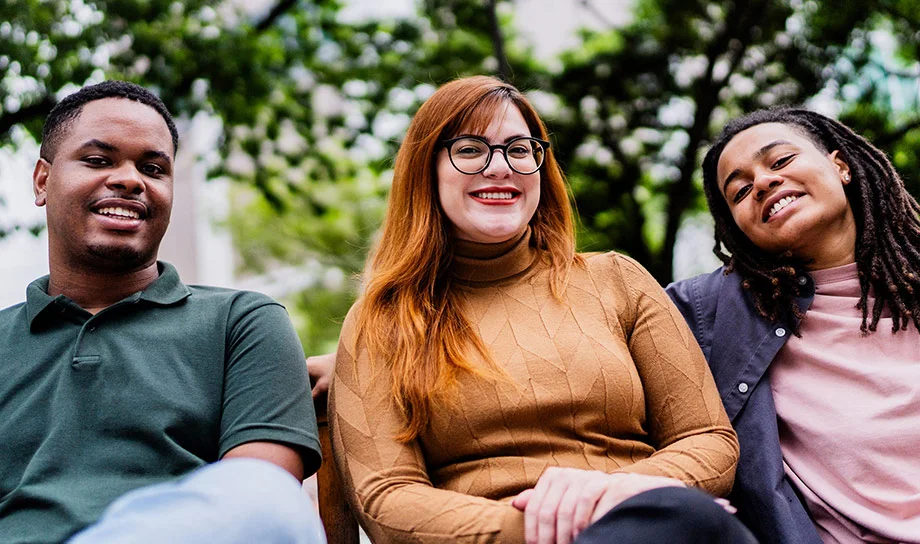The LOTUS trial, a clinical research trial focused on advancing care for people living with HS

Age 18 or older

Symptoms of HS present for 6 months or more

Includes patients who have taken another therapy for HS
Additional enrollment criteria apply.




A placebo is an inactive substance that looks like the trial drug (AVTX-009) but does not have any effect on the condition being studied (in this case, HS).
All treatments (AVTX-009 or placebo) are given as an injection just under the skin every 2 weeks for 14 weeks. Injections are given at the trial center by trained medical professionals.
The investigational medicine being looked at in LOTUS is called AVTX-009. It’s thought to work by blocking an important driver of inflammation called IL-1β.1-3 Blocking IL-1β can potentially reduce or even stop the inflammation that underlies HS.1,4,5
Blocking IL-1β has been shown to be effective in other diseases involving inflammation. However, to date, AVTX-009 has not been studied in people with HS.
HS is a chronic inflammatory skin condition.6-9 Inflammatory means the body’s immune system is attacking healthy tissue by mistake. People with HS can have painful abscesses, nodules and/or scarring that progresses over time.6-9 HS often appears in the armpits, groin and under the breasts.10 It usually starts in young adulthood and 1%–4% of people are affected.11-13 HS is more common in women, people who smoke or are overweight and people who have relatives with HS.11, 12, 14-17 Symptoms can range from mild to severe and can have a large impact on quality of life.18
HS can be hard to diagnose and treat. People wait on average 7–10 years to get a correct diagnosis.10 There are also limited treatment options. Antibiotics, biologic medicines and sometimes surgery are used, but these only address symptoms, not the underlying cause of the disease. Thus, there is an urgent need for new medicines that target HS. This is why trials like LOTUS are being done.
Clinical trials, also called clinical studies or research trials, look at how well a investigational medicine works and if there are side effects. The US FDA and other regulatory agencies require these trials to make sure that medicines are tested correctly.
There are 4 phases of clinical trials. LOTUS is a Phase 2 trial, meaning AVTX-009 (or placebo) is given to people with the condition it’s intended to treat (in this case, HS). In Phase 2 trials, researchers are looking for the best dose for the medicine, as well as to see if it is safe and it works.
Before people can be part of a clinical trial, they are told about the trial and sign a document called informed consent. Informed consent helps make sure people understand what participation will be like and the potential risks and benefits of taking part in the trial.
Clinical trials differ, but participation often involves visits to a clinic and taking the investigational medicine (or placebo) over a period of time. With LOTUS, about 12 visits over 6 months are required. At these visits, AVTX-009 (or placebo) is given, questions are asked and answered and medical tests are performed.
A placebo is commonly used in clinical trials. It looks just like the potential medicine being tested but does not have the ingredients that make up that medicine. People are usually given the investigational medicine or placebo in a “blind” manner, meaning people don’t know what they are getting. (It’s possible to find out in an emergency.)
People who join clinical trials are helping others with their condition, as the trials help to find better treatments for disease. Clinical trials can also potentially provide access to investigational medicines that are not otherwise available. In terms of risks, side effects are a possibility, and people may not receive the investigational medicine. Even if they do receive it, it may not work.
Being part of a clinical trial is always 100% voluntary. People can change their minds about participating at any time.
Many clinical trials, including LOTUS, may offer some compensation for your time and effort as well as transportation costs and other costs related to trial participation. It doesn’t cost anything to participate, and participants will not be charged for any procedure performed specifically as part of the trial.
Clinical trials have criteria that people must meet to join. The trial staff asks questions and does tests to see if a person is eligible.
For more about clinical trials in general, visit clinicaltrials.gov.
For more about LOTUS, contact the trial staff at avaloclinicaltrials@avalotx.com or 610.254.4205.

You are now leaving www.lotustrial.com for another external website. When you click on the link, you will leave our site and open a new tab/window. We provide these links as a convenience and Lotus Trial is not responsible for, nor endorses, any content on third party sites.
